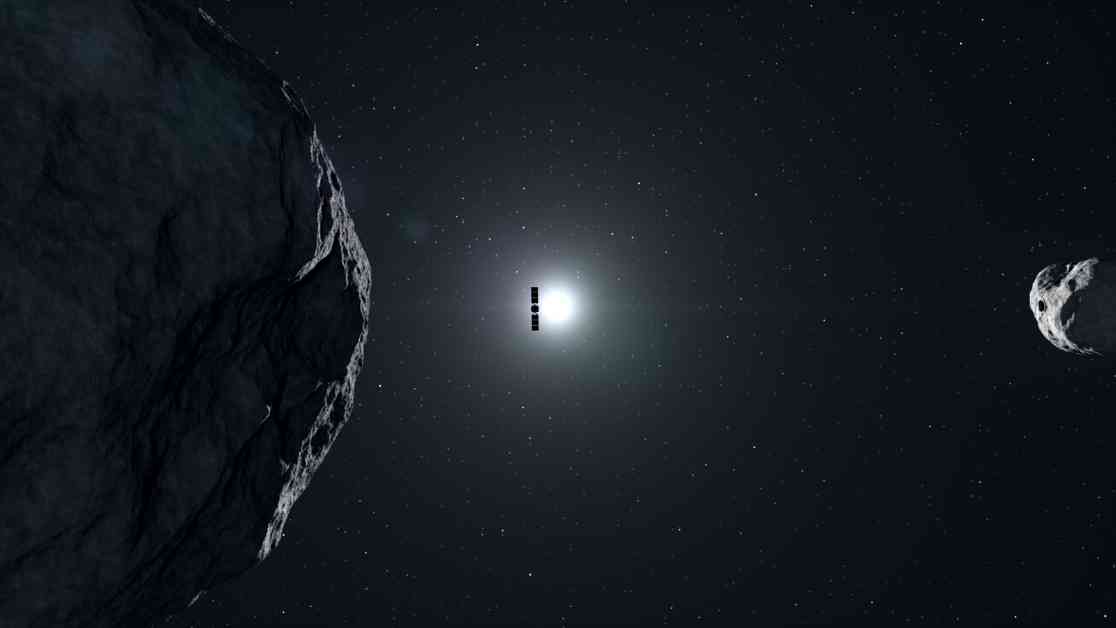As I engaged with the Hera Space Companion, an AI-powered assistant developed for the European Space Agency’s (ESA) Hera mission, I couldn’t help but feel a mix of excitement and nerves, much like the AI itself. The mission, launched in October, aims to assess Earth’s ability to defend against a catastrophic asteroid impact, making it a critical planetary defense project.
One of the most intriguing aspects of the Hera mission is the accessibility it provides to the general public through the use of AI. By connecting data from the spacecraft directly to Microsoft Azure, users can actively engage with the mission in near real-time, gaining a unique behind-the-scenes look at space exploration. This level of engagement allows individuals to follow discoveries as they happen and feel connected to the vastness of space in a whole new way.
The AI companion, designed to communicate with the spacecraft, offers users a personalized experience by aligning with individual conversational patterns. This allows for complex space concepts to be communicated in an engaging and understandable manner, bringing the wonders of space exploration closer to home. The chatbot’s telemetry section provides unique data from ESA and the spacecraft’s sensors, offering insights into speed, altitude changes, and other technical details.
During my interaction with the AI, I was impressed by its ability to provide precise information about the spacecraft’s location, trajectory, and upcoming milestones. The AI’s responses were not only informative but also reflective of the vastness and isolation of space, painting a picture of a grand, uncharted territory waiting to be explored.
Looking ahead, a significant moment for the mission will be in March 2025 when the spacecraft is expected to fly by Mars. The AI companion will be able to share real-time photos captured by the spacecraft’s cameras, giving users a glimpse of the red planet from a unique perspective.
The experience of interacting with expert chatbots like the Hera Space Companion can have a profound impact on individuals, according to Michael Graziano, a professor of neuroscience and psychology at Princeton University. While there is no scientific evidence to suggest that these sophisticated chatbots are conscious, people tend to perceive them as more human-like, leading to a positive effect on their social health.
In conclusion, the Hera mission’s integration of AI technology not only enhances the accessibility of space exploration but also fosters a sense of connection and engagement among users. As we continue to push the boundaries of space exploration, AI companions like the Hera Space Companion will play a crucial role in bridging the gap between humanity and the vastness of the cosmos.










